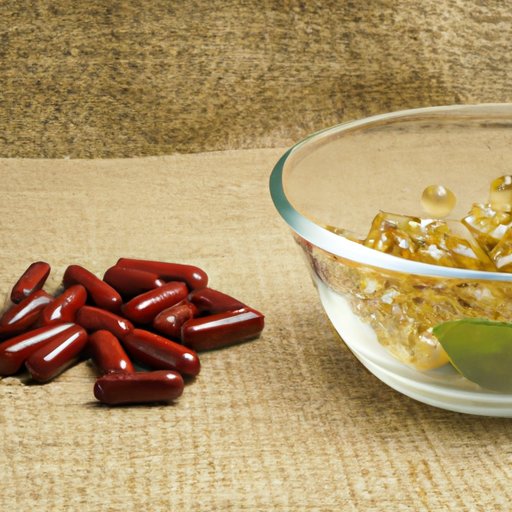
I. Introduction
Nausea is an unpleasant sensation that can affect anyone at any time. It is a common symptom of many conditions, including motion sickness, pregnancy, and certain medical conditions, and it can significantly impact people’s lives by causing discomfort and disrupting daily activities. The purpose of this article is to provide solutions for alleviating and preventing nausea, including natural remedies, over-the-counter drugs, preventative measures, and dietary recommendations.
II. Understanding the Basics of Nausea
Nausea is a sensation of discomfort in the upper stomach, often accompanied by an urge to vomit. It can be caused by various factors, including motion sickness, pregnan
cy, anxiety, stress, and medical conditions such as acid reflux disease or gastroenteritis.
III. Natural Remedies
If you are looking for natural remedies, there are several options available to help alleviate nausea. One solution is practicing breathing exercises, which can help reduce stress and anxiety and aid relaxation. Ginger tea or candy is another effective remedy for nausea due to its natural anti-inflammatory and anti-oxidant properties. Peppermint essential oil, acupressure, and acupuncture are all alternative treatments that can help alleviate nausea. Adding these remedies into daily life can help prevent nausea and keep you feeling better.
IV. Over-the-Counter Drugs
If natural remedies do not work for you, over-the-counter drugs can also help cure nausea. Pepto-Bismol is a common medication that can help soothe an upset stomach and alleviate nausea. Dramamine is a medication that helps prevent nausea from motion sickness, anxiety, and nerves. Anti-emetic medications such as Meclizine can also provide relief for nausea. It is essential to read and follow the instructions on the product label to ensure safe and effective use.
V. Tips for Preventing Nausea
It is essential to take preventative measures to avoid nausea, and here are some tips you can use to prevent it. Eating small, frequent meals throughout the day can help regulate your digestive system and keep it from getting overwhelmed. Staying hydrated by drinking plenty of fluids such as water, clear broths, or sport drinks is also vital. Fresh air and reducing exposure to strong smells is another excellent preventative measure for people who are prone to nausea. Along with these tips, lifestyle changes such as reducing stress and getting enough sleep will help reduce frequency from experiencing nausea.
VI. Diet Recommendations
Proper diet is equally important when trying to avoid nausea. Toast or crackers are bland foods that can help settle an upset stomach, while bananas or applesauce are rich in potassium and help replace lost electrolytes. Drinking herbal teas such as chamomile or peppermint can also aid digestion and alleviate nausea. With a balanced diet, it is essential to avoid fatty or spicy foods, which can cause digestive harm.
VII. The Importance of Staying Hydrated
Dehydration is a leading cause of nausea and can occur when the body loses more fluids than it takes in. For people experiencing nausea, proper hydration is important to prevent dehydration and reduce nausea. It is essential to keep yourself hydrated by drinking water frequently and consuming hydrating foods rich in water content like watermelon or cucumber.
VIII. When to See a Doctor
While most cases of nausea can be cured with natural remedies or over-the-counter drugs, persistent nausea or vomiting, dehydration, or extreme pain may require medical attention. If you experience these symptoms, especially those that last for more than a day, or you’re noticing that you’re not urinating regularly, it’s essential to seek medical help promptly.
IX. Conclusion
Nausea can occur due to various factors, including motion sickness, stress, and anxiety. To alleviate nausea, natural remedies, over-the-counter drugs, and dietary recommendations can be effective. Preventative measures such as staying hydrated, reducing exposure to strong smells, and a balanced diet can also help reduce nausea. It is essential to seek medical attention if symptoms persist or if there is a concern that you may be severely dehydrated. Remember, there are several solutions to help alleviate nausea, and different remedies will work for different people.




